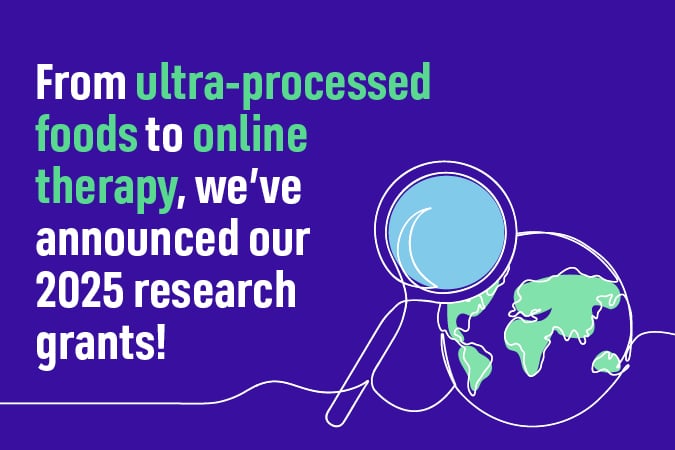World Cancer Research Fund has taken a leading role internationally in advancing the state of knowledge on the biological mechanisms underlying the associations between diet, lifestyle and body size, and cancer risk and survival, including their systematic review process for reviewing the mechanistic literature. We are delighted to have the opportunity to implement this systematic review process with funding from World Cancer Research Fund, towards improving understanding on mechanisms linking body fatness to cancers of the breast, endometrium and ovary, and towards ultimately informing strategies for prevention.
– Dr Renée Turzanski Fortner
Grant title: Biological mechanisms underpinning associations between adult body fatness and postmenopausal breast, endometrial and ovarian cancers: a systematic review demonstration project using the World Cancer Research Fund-University of Bristol framework.
Background
Overweight and obesity are associated with a higher risk of at least 12 cancers, including breast (postmenopausal), endometrial and ovarian. However, we do not yet fully understand how or why overweight and obesity increase the risk of these cancers. Advancing this understanding is a major priority, as it may help inform strategies for interventions to reduce cancer risk and ultimately prevent many cancers. Intermediate mechanistic pathways such as:
- sex steroids like oestrogens and androgens
- inflammation
- insulin-related factors
are likely links between body fatness and cancer risk.
There is a wealth of information in the published literature on associations between overweight and obesity and these potential intermediate mechanisms. Similarly, there are many studies published on these intermediate mechanisms and risk of breast (postmenopausal), endometrial and ovarian cancer. To date, these data have not been systematically reviewed to create an integrated summary of the evidence. We used this wealth of published data to better understand the association between body fatness and risk of these cancers in women.
Aims and objectives
Our overarching aim was to systematically review the published literature to summarise the state of the science on potential mechanisms linking overweight and obesity to breast (postmenopausal), endometrial and ovarian cancer. We achieved this aim by accomplishing 3 objectives:
- We systematically reviewed the literature linking adult body fatness to the following mechanistic pathways:
- sex steroid hormones
- inflammation
- insulin and insulin-like growth factors (IGFs)
- We systematically reviewed the literature linking:
- sex steroid hormones
- inflammation
- insulin and IGFs
to breast (postmenopausal), endometrial and ovarian cancer. A meta-analysis to provide summary estimates of associations across studies was conducted where feasible.
- We integrated the evidence from objectives 1 and 2 to provide an integrated summary of the evidence linking adult body fatness to the selected mechanistic pathways, and from these pathways to the selected cancers.
Methods
The systematic reviews were conducted using a framework for systematic reviews of mechanistic research developed by World Cancer Research Fund and the University of Bristol. Our group participated in a feasibility test of the framework, and has extensive experience in the area of breast, endometrial and ovarian cancer research, and thus were well-qualified to execute the review and interpret the evidence.
Results
We found strong evidence of associations between body fatness and sex steroids, inflammation and insulin- related biomarkers, with reductions in adiposity associated with significant changes in biomarker levels in blood. Sex steroids, inflammation and insulin-related biomarkers were associated with risk of breast, endometrial and ovarian cancers, with differences in associations for markers on the individual pathways by cancer site and subtypes. Findings on sex steroids were predominantly in postmenopausal women, with fewer studies available on premenopausal women.
Conclusions
Overall, sex steroids, inflammation and insulin-related biomarker pathways were confirmed with convincing evidence as mechanistic links between adiposity and endometrial cancer, non-serous subtypes of ovarian cancer, and breast cancer.
Impact
The project was the first comprehensive, 2-stage systematic review of putative mechanisms underlying associations between body fatness and postmenopausal breast, endometrial and ovarian cancer using the World Cancer Research Fund-University of Bristol mechanisms review framework. The identification of pathways linking body fatness to breast, endometrial and ovarian cancer may inform the selection of potential targets for interventions and cancer prevention, and will guide future intervention studies.
Grant publication
Kebede, M.M., et al. (2022). In‐depth evaluation of machine learning methods for semi‐automating article screening in a systematic review of mechanistic literature. Research Synthesis Methods, vol. 14, no. 2, Mar. 2023.



